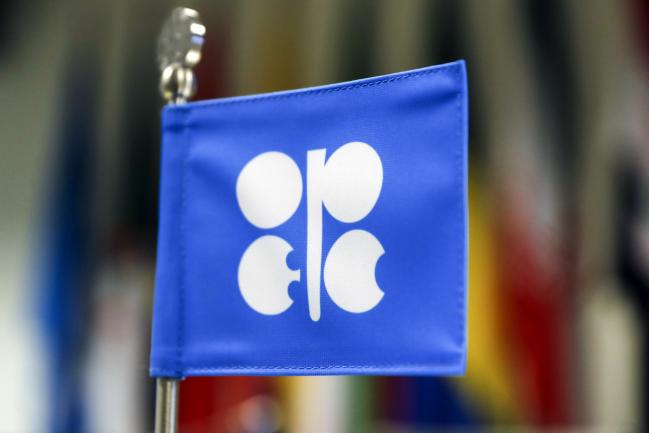(Bloomberg) -- U.S. Senator Chuck Grassley, along with a fellow Republican and two Democratic lawmakers, introduced legislation in the Senate that’s aimed at allowing the government to bring lawsuits against OPEC members for antitrust violations.
Lawmakers in the other chamber of Congress, the House of Representatives, already introduced a version of the “No Oil Producing and Exporting Cartels Act,” or NOPEC, bill in May. Congress has discussed various forms of NOPEC legislation since 2000, but both George W. Bush and Barack Obama threatened to use their veto power to halt it from becoming law. The risk for the Organization of Petroleum Exporting Countries is that U.S. President Donald Trump may break with this precedent.
“It’s long past time to put an end to illegal price fixing by OPEC,” Grassley said in a statement. We are “committed to reducing our reliance on foreign oil, especially when it’s artificially and illegally priced. Our bill shows the OPEC members we will not tolerate their flagrant antitrust violations.”
OPEC pumps about a third of the world’s oil, and the biggest of its 15 members is Saudi Arabia, one of America’s closest friends in the Middle East. While the group doesn’t target a specific crude price, it adds or removes supplies in the market and therefore can affect prices. Benchmark Brent crude has gained 26 percent since January 2017 as OPEC cut output.
U.S. oil imports from OPEC countries have declined by almost half from the 6 million barrels a day in 2008, according to data from the U.S. Energy Information Administration. Yet, at 3.4 million barrels a day in 2017, such imports remained 17 percent higher than in 2015, when they fell to their lowest in almost three decades.
Trump has been a vocal critic of OPEC for decades, first in his books and then via Twitter. He has also gone further than other presidents in commenting about specific oil prices and production levels.
Trump’s track record is important because it raises the odds that the White House will sign into law a bill that has broad bipartisan support. In 2007, a similar bill passed in the House of Representatives in a 345-72 vote, and in the Senate by 70-23, only to fail afterward in the face of White House opposition.
The NOPEC legislation that Grassley, chairman of the Senate Judiciary Committee, and his colleagues introduced would amend the Sherman Antitrust Act of 1890. The other senators sponsoring it are Utah Republican Mike Lee and Democrats Amy Klobuchar of Minnesota and Patrick Leahy of Vermont. All four senators represent largely rural states, where oil prices, as reflected in the cost of gasoline, can have a big impact on local economies.
(Adds oil price in fourth paragraph. An earlier version of this story corrected period for low U.S. imports from OPEC in fifth paragraph.)
